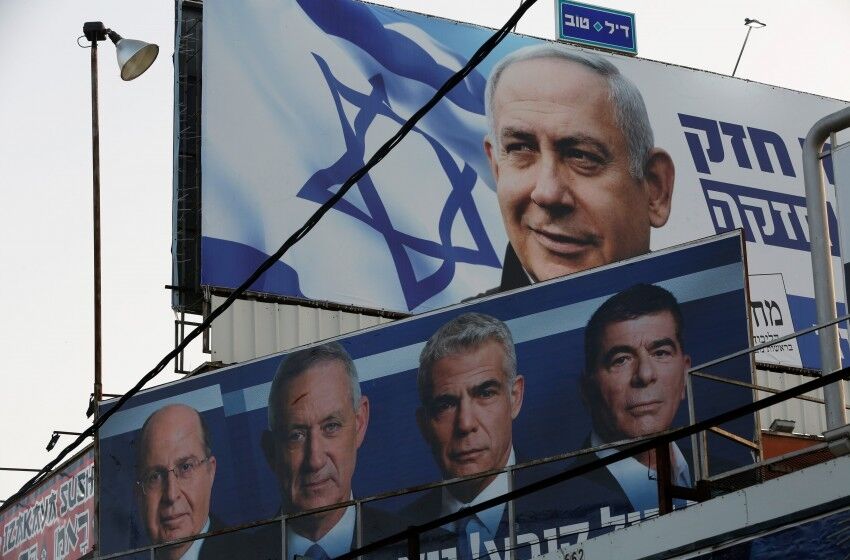Hossein Ajorloo told the Strategic Council on Foreign Relations that the fourth elections in two years were held on 23 March 2021 in the Zionist regime and given the results of the elections, even aligned parties were unable to attract the necessary number of votes to form the cabinet of the regime, leading it to a political deadlock in the Occupied Palestinian Territories.
Asked about reasons why the Israeli prime minister fails to form a cabinet, he said “the first reason was that in Israel’s political scene, Benjamin Netanyahu tries to extend his post as prime minister and the Likud Party has won a remarkable number of votes so as to enjoy majority in the parliament. However, on the other side, the serious opposition of other parties, individuals and movements with the extension of the tenure of Netanyahu has led to the present political deadlock.”
Referring to the current bipolar ambience in Israel as the result of the opponents and proponents of the extension of the tenure of Netanyahu as prime minister, he said even though it seems that proponents of the continuation of the tenure of Netanyahu are more organized, opponents outnumber them and therefore would prevent Netanyahu from assuming power again.
This expert of Middle Eastern issues blamed the trend of political developments in the Israeli regime for the failure of the parties to form a cabinet, saying “traditionally, competition in the Israeli regime has been between the rightist and leftist parties and in general, the leftists have formed most of the cabinets between 1977 and 1990s. However, after the 1990s, the rightist parties have gained the highest number of votes, forming the cabinet of ministers.”
Ajorloo added that today the rightists have gained so much power in the political scene of the Zionist regime that consequently the completion is presently between the rightist and far-right parties, saying that in the past, rightist parties were more united when it came to serious confrontation with the leftists; however, now the confrontation remains among rightists themselves, resulting in delays in the formation of the cabinet.
He said the leftist parties and the Arabs have also gained remarkable number of seats in the Knesset; however, since the rightists are not interested in forming a cabinet with the presence of the Arabs and the leftists, a political deadlock prevails.
He said the leftist parties all across the world have been weakened in the past years and they lack a strong leader.
“One serious challenge for the parliamentary system is the lack of effective and outstanding figures. At the present time, there are many parties in the scene and we are witness to a political multi-polarity in the occupied territories which has resulted in political deadlock.”
Referring to the role of foreign allies in the elections of the Zionist regime, he said foreign allies of the Tel Aviv regime are interested in moderate parties to rule the government; however, inside the Israeli regime, people favor more radical parties. This has made former Israeli allies namely the EU and the United States to reduce the great support they provided to the previous governments in Tel Aviv.
Ajorloo said none of the political parties in Israel accepted to form a coalition otherwise a cabinet could have been formed.
“For example, the moderate party of Mr. Lapid gained 17 seats in the parliamentary elections and can form a coalition with the leftist parties. However, it cannot cooperate with the far-rightists,” he said, adding that both Netanuaho and Lapid are trying to form a cabinet; however, none of them has been able to secure 61 seats necessary for the Knesset to form the government. That’s why the president of the Zionist regime concluded that Netanyahu, as the leader of the majority seat holders, should form the cabinet.
“From the legal point of view, Netanyahu has 28 days plus two weeks to form the government. There are about three weeks remaining. Netanyahu tries to unite rightist parties with some rightist slogans; however, he failed to do so.”
Asked about scenarios for the formation of the Israeli cabinet, Ajorloo said one of the Netanyahu’s allied parties has presented a proposal on the basis of which Prime Minister is going to be elected by the people. This plan was implemented twice earlier in 1996 and 2001 to break the deadlock.
“According to the plan, four main candidates belonging to the four main parties would participate in elections and one is elected as prime minister by the direct vote of the people. This plan does not enjoy partisan support. When it was implemented in 1996 and 2001, the parties were not consent and it finally failed.”
Ajorloo added that such a plan would not be successful in parliamentary systems as a prime minister elected directly by the government shall not be responsive to the Knesset.










0 Comments